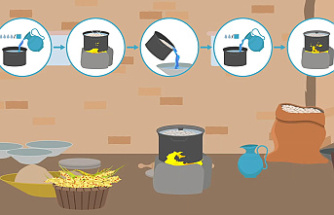Many of the people who were caught unawares by the torrential downpours caused by Tropical Storm Henri and Hurricane Ida's remnants lived in areas that are not within the floodplains. This made flood insurance unnecessary for many of the families of working-class families whose communities were the most affected.
"When we called the insurance company the first thing they said to us was that they don’t offer any assistance for storm-related damage. They left it at that," Amit Shivaprasad stated, his rising voice echoing the frustrations of his Jamaica neighbors.
After New York City's building inspectors declared their home unsafe, Shivprasad has been living with his parents for weeks.
Floodwaters from Ida, which was exacerbated due to storm surges and sewer drains, caused a wall to burst and drowned two tenants. About 50 people died in the Northeast from the storm. Many of them drowned in basements or in their cars. It struck the region less then two weeks after Henri's drenching.
Residents of Shivprasad's neighbourhood have complained for years about flooding.
Shivprasad said, "This isn't a flood zone which is something that I was shocked at," as Shivprasad explained. His family's home is 4 miles from the nearest flood plain. Flood insurance would have been required if the home were located in a flood plain.
According to , a database created by the Association of State Floodplain Managers, only 16 homes were covered by flood insurance.
Renters and homeowners insurance policies do not cover flood damage. According to Loretta Worters, spokesperson for the Insurance Information Institute, people without flood insurance have limited options for receiving help for damages. She said they may be eligible for federal assistance, which could include low-interest loans or grants for damage.
Officials are still trying to calculate the losses, which are estimated to be in the millions of dollars. Residents wonder how they will come up with the funds to fix their homes and replace their belongings. Fans still whirl in the dank basements, while dump trucks continue to make rounds to remove mildewed couches and squishy mattress and other useless electronics.
According to the Federal Emergency Management Agency, it has already distributed at least $22 Million to almost 5,200 New York City families. More than 38,000 households applied for assistance. New Jersey has approximately 39,000 families awaiting assistance, and FEMA has already paid $11 million to almost 3,000 families.
According to FEMA, approximately $10 million has been paid in New Jersey so far in flood insurance claims to 6,000 policyholders. For 2,600 flood insurance claims, $3 million has been paid out in New York City's five boroughs.
Flood insurance is required for mortgages that are attached to properties with a 1 in 100 chance of flooding each year. It is available through the National Flood Insurance Program. However, it is optional for all other homeowners. Some people consider it unnecessary, especially since severe weather is now more frequent and more intense.
FEMA spokesperson Michael Wade said, "You never know when that flood will occur in your neighbourhood, especially with the way we are acting right now."
He said that if you look at the storm, you will see that floodplains people -- who had never been flooded -- suddenly get inundated by 6 inches of rain per hour. They now have problems."
John and Roseann Kiernan live in Rossmoor, a sprawling senior-living development in Monroe Township, central New Jersey. It is located 20 miles from the coast and is not close to any major rivers. According to the Kiernans, and others, they have been told that flood insurance is not required because the area isn’t in a flood zone. This despite the fact that the neighborhood was flooded in 2005.
John Kiernan said John Kiernan was a child of a mother who owned the house. She had flood insurance which cost $650 per annum. Eight years ago, she died and the insurance was eventually cancelled. The Kiernans now estimate that it will cost $100,000 for their house to be restored to livable condition, and to replace their car.
John Kiernan (retired corrections officer) said that their existing policy "covered nothing". "The insurance company sent some very kind, understanding people. They listened to everyone for about an hour and then basically said, "You're not getting any."
Joan Russo, her husband and 16-year-old daughter have lived in the same house just around the corner as the Kiernans. They moved in a few days prior to the 2005 flooding. Their home was severely damaged by Henri and they had to move in with their son's family.
She said that when we applied for insurance, the company said "You are not in a flood zone, so there is no need for it." "You listen to your supplier and they tell you that you don’t need it so you don’t get it."
Sahadeo Bhagwandin, back in Queens worries about his family's return. Since the flooding, they have been staying at hotels courtesy of Red Cross.
Bhagwandin, an engineer and structuralist, said, "I don’t know how to fix this." He pointed out a thick crack in his basement wall. Repairing his basement foundation could run to $125,000. It was weakened by floodwaters.
Bhagwandin stated that he used to have flood insurance until a few years ago, but it was cancelled after a 2007 storm caused flooding.
His neighbors, particularly working-class immigrants, might not be as familiar with the complexities and benefits of property insurance. They may not realize they need separate coverage for acts God like flooding or earthquakes.
He said that even if they knew about the possibility of flooding, their financial priorities could have been elsewhere.
Bhagwandin stated that it is not a wealthy community. People try to save every penny they can, rather than buying flood insurance.












